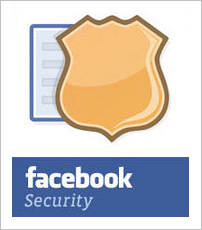Is Facebook safe?

If you are a user of Facebook or considering using Facebook in the future, account security may be on your mind. With all the reports of companies getting hacked, information being stolen, and the whole personal identity theft issue, you may be left wondering whether Facebook is safe to use.
Overall, Facebook as a website is a safe place. There is built-in security that helps to protect you and your information. One primary level of security that Facebook uses is called SSL (secure sockets layer). In a nutshell, this type of security encrypts (protects) any data transmitted while using Facebook, from login credentials to chat conversations.
The Facebook servers, where your data is stored and protected, have security built-in as well. There are anti-intrusion systems in place, to help thwart hackers from getting in, or intruding, and stealing your data. They also employ antivirus & anti-spyware programs to keep their systems clean and free of security threats from virus & spyware infections. Facebook works hard to keep your data locked up and safe from others who might attempt to use your information in a threatening or illegal manner.
There are also ways to protect yourself and your data while on Facebook, beyond what Facebook already does to protect you.
When you log in to Facebook, you provide a password. This password is something you have complete control over and can make it difficult for others to access to your account. Using combinations of capital letters, lowercase letters, and numbers, you can create a password that would be difficult to figure out. Your goal is to make your password something that only you could figure out.
You also should never give out your password to anyone, not even someone you know. That password is for you and you only. Keep it close and help keep your account safe.
Be familiar with phishing techniques. For example, if an e-mail that looks like it's from Facebook, asking for your username, password, or any personal information should be deleted. Facebook never asks you for this information. E-mails that ask for this kind of information are common ways for other people to access your account.
Another way to help keep your account safe is to make sure the Internet browser, browser plugins, and operating system are up-to-date. Doing so ensures you have the most current security features on your system.
Lastly, it's important you have an antivirus and anti-spyware program installed on your computer. Keep this program updated at all times, which helps prevent viruses and spyware infections, greatly reducing the chances of your information and passwords from being stolen.
Regardless of Facebook's default level of security, be vigilant about protecting your privacy. If you're a Facebook member, make sure to review your account privacy settings and adjust them if necessary. We recommend your settings allow only your friends (not friends of friends) to view your profile, pictures, and information.
